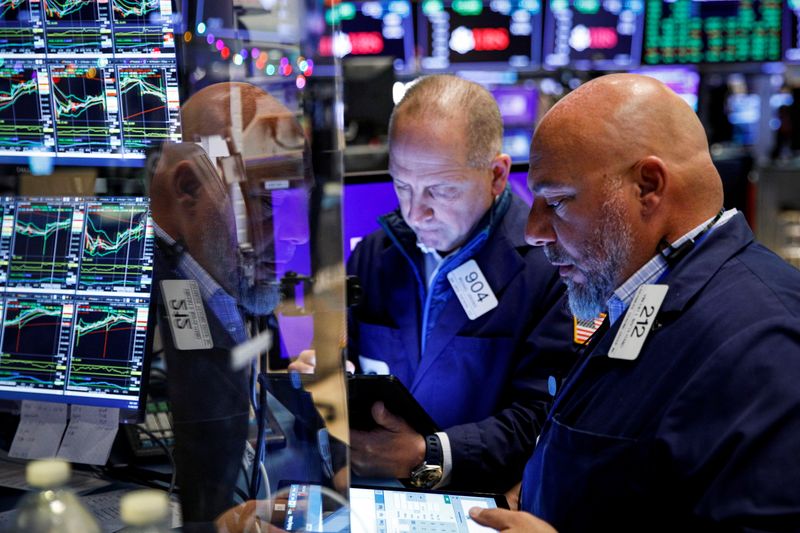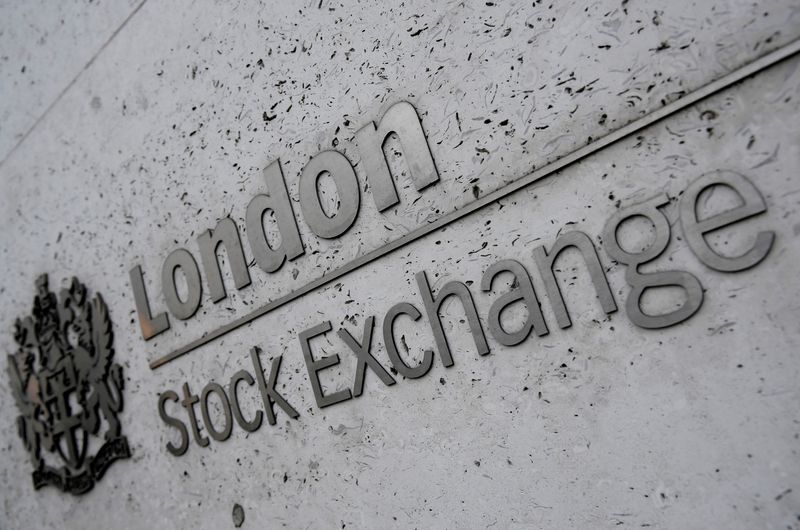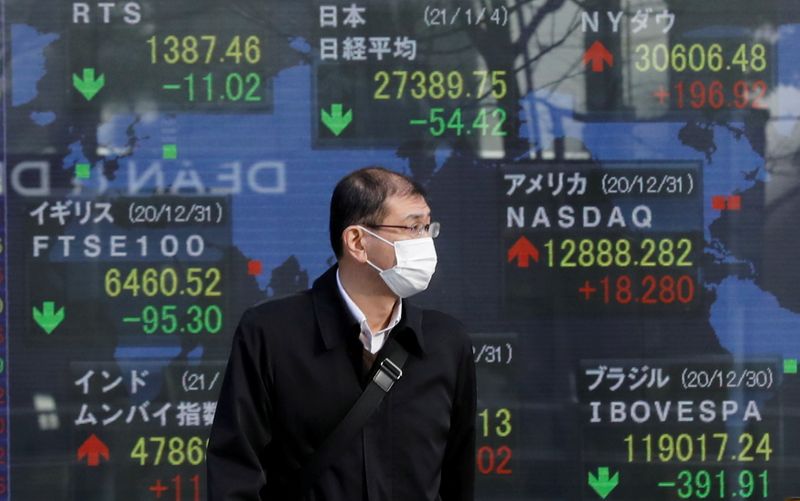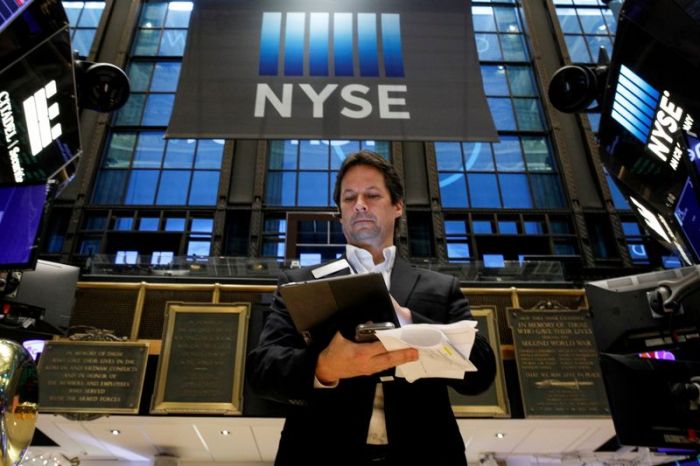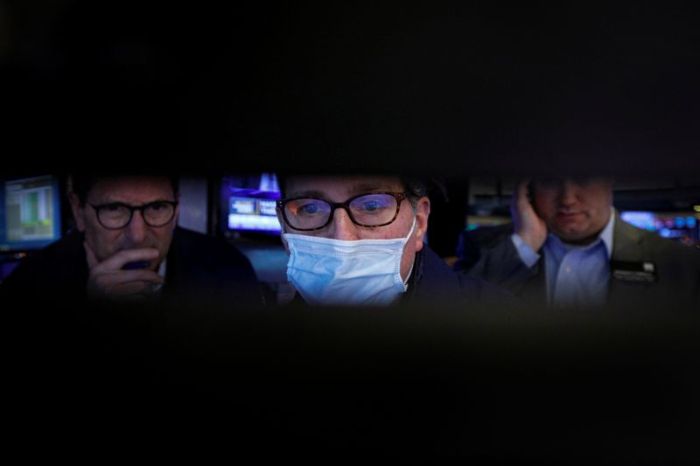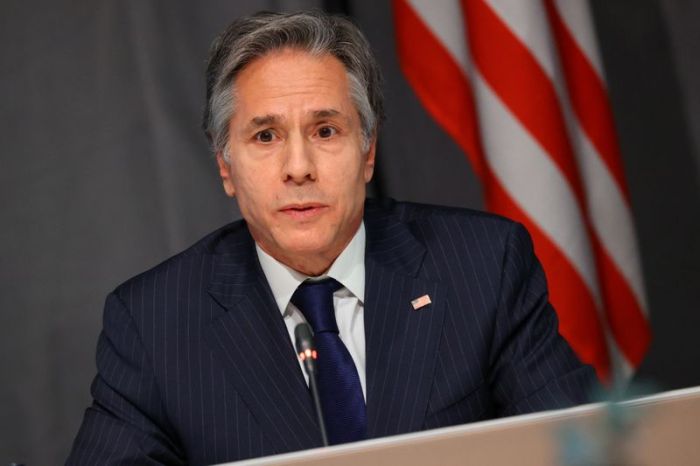By Herbert Lash
NEW YORK (Reuters) -Global stock markets and Treasury yields edged higher on Wednesday as investors became less concerned about the Omicron coronavirus variant but sentiment cooled after the prior day’s big rally in equities and crude oil prices.
Stocks closed lower across Europe but the three main U.S. indices closed up as drugmakers Pfizer and BioNtech said a three-shot course of their COVID-19 vaccine neutralized Omicron in a laboratory test.
The benchmark U.S. 10-year Treasury yield rose for a third straight day, climbing above 1.5% for the first time in a week, and gold prices were little changed as investors squared positions before Friday’s release of U.S. consumer prices data.
Investors are carefully watching the effectiveness of existing vaccines on Omicron along with its severity and how infectious it is, according to Jeremy Leung, portfolio manager at UBS Asset Management in London.
“We also need to consider the time needed to adapt the vaccine, which would determine whether there is further disruption to the recovery ahead,” Leung said, adding that Omicron could exacerbate supply chain difficulties.
“Rate expectations have fallen recently due to macro concerns and therefore caused growth versus value volatility along with general market volatility,” Leung added.
MSCI’s all-country world index rose 0.39% and the STOXX Europe 600 index fell 0.44%. The U.S. benchmark S&P 500 came less than 0.1% from a record close.
On Wall Street, the Dow Jones Industrial Average rose 0.10%, the S&P 500 gained 0.31% and the Nasdaq Composite advanced 0.64%. Communication services and healthcare led the S&P sectors higher, with growth shares rising 0.58% and value little changed.
The dollar slipped against several major currencies as easing concerns about Omicron helped support riskier currencies, with the Australian dollar rising 0.83%, on pace to notch a third straight session of gains.
The dollar index, which tracks the greenback versus a basket of six currencies, fell 0.38% to 95.906. The euro rose 0.74% to $1.1346 and the yen added 0.10% at $113.68.
The yield on 10-year U.S. Treasury notes rose 4.8 basis points to 1.528%.
Longer-term yields had fallen recently as investors were unsure what Omicron would mean for the economy, said Kevin Flanagan, head of fixed income strategy at WisdomTree.
“If Omicron does fade a bit in the headlines you will continue to see all Treasury yields rising as we move forward,” Flanagan said.
The yield on the 10-year Treasury note last week posted its biggest weekly drop since June 2020 after Federal Reserve Chair Jerome Powell took a more hawkish policy tone and Omicron concerns rattled markets.
The U.S. central bank is scheduled to hold its final policy meeting of the year next week, when an increased pace of tapering its bond purchases is widely expected.
London’s FTSE 100 and the British pound were knocked by reports that Britain could implement tougher COVID-19 measures as early as Thursday.
Brent crude, the international benchmark, steadied above $75 a barrel in choppy trade, taking a breather after strong gains earlier this week.
Brent crude futures rose $0.38 to settle at $75.82 a barrel, while U.S. crude settled up $0.31 to $72.36 a barrel.
U.S. gold futures settled mostly unchanged at $1,785.50 an ounce.
Shares in China’s Evergrande Group hit a record low after a missed debt payment deadline put the developer at risk of becoming the country’s biggest defaulter. Analysts said the news produced limited global market impact because it was already “well-priced” by the market.
(Reporting by Herbert Lash, additional reporting by Elizabeth Howcroft and Joice Alves in London; Editing by Will Dunham, Alex Richardson, David Evans and William Maclean)

